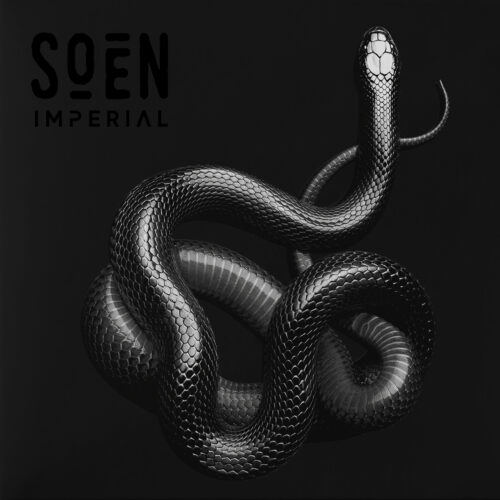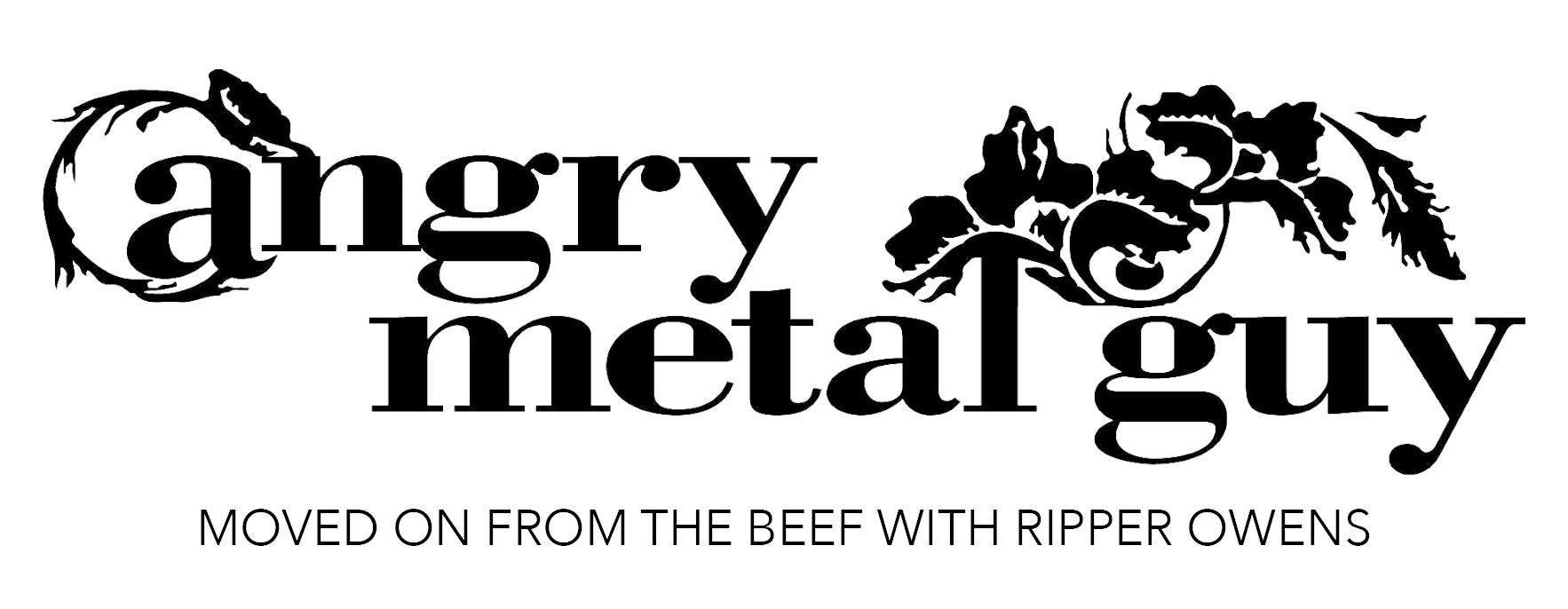
I’ve had a lot of time to think about Soen’s Imperial, which is 2021’s addition to the band’s already impressive oeuvre. In fact, I’ve had snippets of these songs rolling into my text messages since before the band even went into the studio. Not only that, however, I have watched the band’s development from afar since the release of Cognitive in 2012. I was gratified in 2014 to hear Tellurian was just as addictive to listen to as its predecessor but that rather than reflecting the band “as Tool fans,” to quote López, it reflected the band as Soen. The band’s sound was cemented more on Lykaia, though it suffered from production issues, and it truly peaked on Lotus. On Lotus, I declared that the band not only had found its sound but that Soen had finally received the production it deserved. In that sense, it has been difficult to know where the band would go next. But change is almost always inevitable.
In Caliban’s War, the second book of James S.A. Corey’s gritty space opera series The Expanse,1 the botanist with a missing daughter explains that one of the problems of human-made ecosystems is that they can quickly get out of balance.
“It’s a simple complex system. That’s the technical name for it. Because it’s simple, it’s prone to cascades, and because it’s complex, you can’t predict what’s going to fail. Or how.”2
Albums—really, works of art more broadly—are sets of choices with consequences. And while choices might not seem to be directly interdependent, they may affect each other in unexpected ways. I heard an anecdote about a change that was made during the play-testing phase for a first person shooter.3 The play-test team kept getting complaints back about how the mechanics of the guns seemed wrong. As I recall, the team went through several iterations before realizing that the problem wasn’t the mechanics of the gun: it was the sound design. When they changed the way the gun sounded when fired, the perceived problem disappeared. Albums are similar. If you make too many incompatible choices, you can find yourself in a cascade of failures where small changes have big effects but where it’s difficult to locate the culprit. Soen’s Imperial is a record that pursues some of the changes foreshadowed on Lotus. And that little ecosystem of choices can work well with these adjustments, or it can start to cascade.
The first choice you will notice when you press play is that Imperial does not sound like Lotus. Yes, the band is still Soen. They still play a kind of post-90s progressive metal that is driven more by bass, drums and groove than the Dream Theater era of prog was. But the album’s most obvious shift in direction is immediately audible from the tone of the kick drum in the first seconds of “Lumerian.” One of the things I like to do when I’m listening to albums is to use Tonal Balance Control to investigate an album’s overall sound. When “Lumerian” is compared with Lotus’s “Opponent,” you can see that new producer Kane Churko’s sound seems to rely on opening things up in the highest frequencies. This gives the album an unusual brightness, but also bite. At first, I thought that he was scooping heavily—that is, removing the mid-range frequencies and emphasizing highs and lows.4 But in the songs that I inspected, it seemed more like Churko expanded the high end and pulled down the bass. This has the unfortunate consequence of rendering Zlatoyar’s bass anonymous at times, however, as it competes with the kick. But it makes the overall sound of Imperial heavier—more immediate—than Lotus and Lykaia.

However, Imperial definitely sounds like Soen. At the core is the footwork of Martín López, which riffs along with the guitars and bass on the kick (like on “Antagonist” or “Monarch”), he’s the motor that defines the band’s signature. Furthermore, there’s a “less is more” quality to his drumming that, when combined with the new bassist, Zlatoyar Kobel, anchors Soen’s sound. The second pillar of this sound is guitarist Cody Ford. While he rarely engages in guitar gymnastics, Cody shows off his skill through his superb touch and feel. When he isn’t sustaining clean chords over pre-choruses, he’s playing tasteful guitar solos that hit the listener in the feels and evoke Pink Floyd comparisons. The guy has serious chops and is creative as well,5 and you can see this at moments like the off-kilter solo in “Modesty,” which shines but will surely raise some hackles. Lars Åhlund—who sports a Nietzsche mustache and is the world’s nicest man—plays keys. He’s not a flashy player, but instead his performance is used to tastefully to gird song structures and he’s often audible closing songs out (“Lumerian,” “Deceiver,” or “Illusion”). He’s also responsible for the string arrangements that litter the album. As with Lotus, strings help to raise the emotional vibe of Imperial and they truly stand out (“Fortune” = <3).
One of Imperial’s real strengths is Ekelöf’s continued improvement as a frontman. Some of this is a credit to Churko’s production, but most of the credit needs to be given to Joel himself for continuing to grow. There are two things that are happening simultaneously that make his vocals seem special on Imperial. First, with a nod to the band’s chorus-heavy writing, Ekelöf’s higher in the mix. This fits perfectly, as the songs are poppy and dramatic, with the songs featuring big choruses with a lot of vocal bedding (“Antagonist” and “Lumerian” stand out, but this is basically every song). While this can feel a little bit formulaic at times, Ekelöf is more than up to the task of building and maintaining that drama. Second, Joel is utilizing a larger variety of vocal approaches on Imperial. He seems to have found a higher gear for the grand choruses—though ample use of spreader plugins help (“Antagonist”)—but maybe more impressive is the development of a hard-edged tone that made its debut on “Monarch” and “Antagonist.” The technique almost reminds me of Garm’s cleans in Arcturus; flat and hard with no vibrato. Combining Churko’s more pop-oriented mix and master and Ekelöf’s own growth as a singer, the vocals really shine.

The ecosystem of Imperial has two specific adjustments that I think need some consideration, however. First, Soen seems to be settling into a specific groove. Focusing on the big, chorus-driven tracks worked well for the writing process and the songs here are all individually interesting, but structurally, Imperial feels like the band’s least dynamic album. Furthermore, I was struck by the similarity in the rhythms of the main riff in “Opponent” from Lotus and “Lumerian” from Imperial with both songs even starting at the 5-second mark. Five albums in, there’s a risk of stagnating if Soen doesn’t begin to listen carefully to make sure that they’re not falling back on their own writing tropes. A second unexpected consequence of the Churko production is that I found myself longing for the material to be even heavier at times. Rather than backing off and being thoughtful, I was waiting for even more explosive highs. For example, “Monarch” is a gorgeous song that ends with a beautiful orchestrations. But the main verse of the song is hooky, addictive and heavy. It creates a sense that the band is building to something, before they suddenly let off the gas. Songs often feature chunky, heavy, riffy hooks or verses, but a pre-chorus with sustained cleans (“Lumerian,” “Deceiver”). Sometimes the band converts heavier sections into softer section on repetition (“Antagonist” or “Monarch”). And while the album only has two proper softer songs (“Illusion,” which has the best melodies on the album and “Fortune,” which is pure feeling), the sound feels like it’s saying “go faster” while the band is saying “slow it down.”
Ultimately, though, Imperial is a great album that finds Soen taking two risks that work. First, they leaned into a different approach to their songwriting and, second, they found a producer who knew exactly how to make it sound its best. While you might find this album to be too slick or too loud, I think the vinyl master works well. The sound that Soen has developed is impervious to sounding like overproduced schlock, so the production values just emphasize different parts of the band’s sound. I was worried I would dislike this album with this production, and yet months after my initial exposure, I still love it. Soen is no longer struggling for self-definition. There are moments where there’s a heavy A Perfect Circle vibe or even, on “Illusion,” a Newpeth vibe, but Soen sounds like Soen. The next struggle for Soen is going to be figuring out where to turn. They can rest easy knowing that Imperial is an accomplishment that they can be proud of and which will easily compete for a spot on several lists during Listurnalia in 2021 while they answer that question.
Rating: Great!
DR: 8 | Media Reviewed: PCM master for vinyl6
Label: Silver Lining Music
Websites: soenmusic.com | facebook.com/SoenMusic
Release Date: January 29th, 2021

















